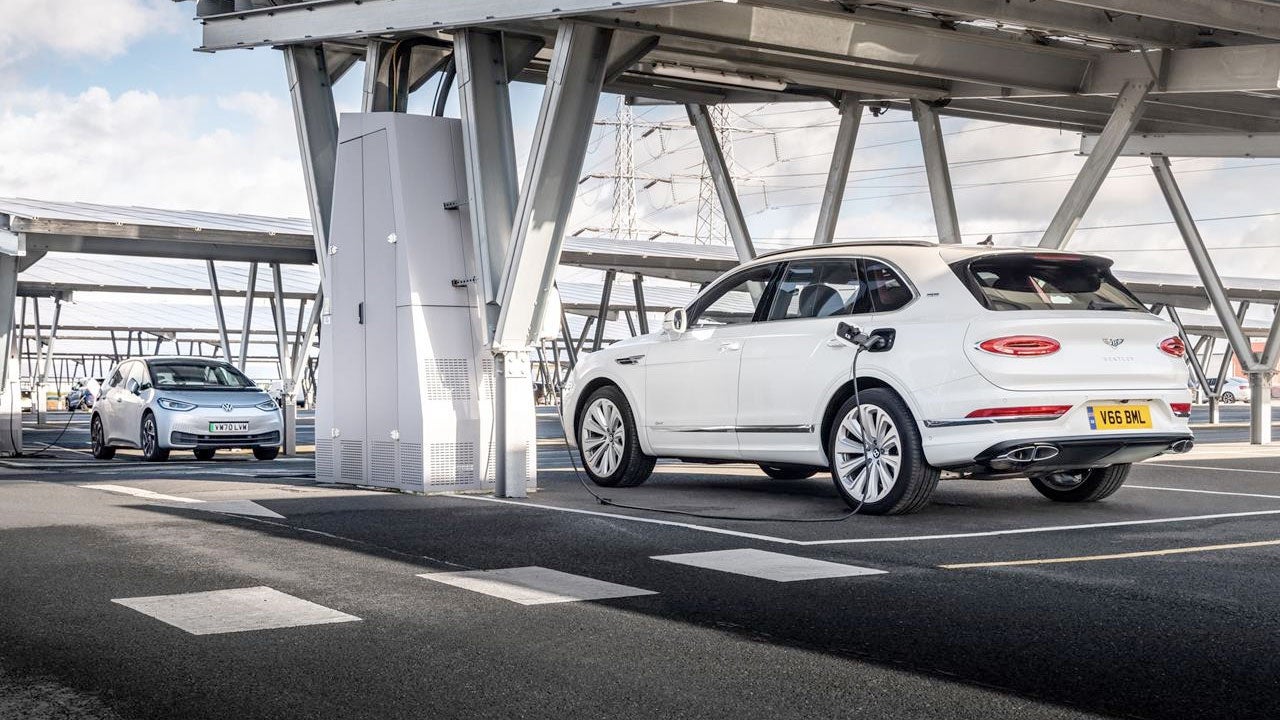
Bentley – which has set a goal of becoming end-to-end carbon neutral by 2030 – has confirmed the recertification of its headquarters and operations in Crewe to PAS 2060 Carbon Neutral specification, by the Carbon Trust. This, it says, reflects the measures taken by Bentley to reduce carbon emitted through its operations.
Since first being certified as carbon neutral in 2019, Bentley has continued to invest in further emissions reduction, with the result that the use of off-sets has decreased by 81% over the same period. Thanks to focused actions by colleagues and the effects of the pandemic on reducing business travel, Bentley’s carbon footprint for operations has dropped from 17,482 tCO2e in 2019 to 3,341 tCO2e in 2020. This in spite of a widened scope of measurement to include all business travel and three satellite sites in the local area.

Discover B2B Marketing That Performs
Combine business intelligence and editorial excellence to reach engaged professionals across 36 leading media platforms.
Peter Bosch, Member of the Board for Manufacturing said: “Over the last two decades Bentley has taken a pioneering approach to sustainable entrepreneurship; creating a high quality, low environmental-impact, highly efficient production facility here in Crewe. We are committed to reducing off-setting and our team is continually implementing great solutions to reduce our impact year-on-year. Our ultimate aim is to create a net climate positive manufacturing footprint by 2030.
“Business-wide we have a clear environmental mission and the latest figures – showing an 81% absolute reduction in CO2 emissions per vehicle, even though we have widened the scope of the measure to capture more of our operations – underline our commitment and the speed of progress we are making.”
Long-term investment and forward planning have ensured that 100% of the electricity and gas used by Bentley is now renewable – being generated either by the 7.7.MW solar array on site in Crewe, or bought in as 100% Renewable Energy Guarantees of Origin (ReGo) certified electricity and 100% Renewable Gas Guarantees of Origin (RGGO) certified gas. At the same time, investment in three new energy-efficient 5.5 MW boilers has also helped to significantly reduce power consumption and make green gas use more efficient.
This green energy is not only now fuelling the factory operations. Thanks to the installation of 130 charging points around the site, it is also now charging future Bentley hybrid and BEV models throughout the research and development phase – and it is also helping to power colleagues’ journeys with a range of zero emissions and hybrid vehicles now available through the company car scheme.
Local logistics have also been considered, with the installation of a 34,000 litre ‘Green D+” renewable fuels tank on site to allow local HGV vehicles and other non-electric site traffic to run on fuel that reduces tailpipe CO2 emissions from logistics vehicles by over 86% compared to regular diesel. Conventional fuel usage by fleet vehicles and generators continues to be compensated with high quality Verified Carbon Standard offsets (Verra).
The achievement reflects almost two decades of work to make the historic Crewe site as energy and carbon efficient as it can be. Although parts of the site have existed since the 1930s, in 1999 Bentley was the first UK automotive manufacturer to achieve the ISO 14001 environmental management standard and sees upgrading the site to maximise energy efficiency and reduce emissions as a continual process.
The Bentley factory site in Crewe contains the UK’s largest solar car port. Covering 1,378 car parking spaces – an area of 16,426m²- the array comprises 10,000 solar panels, with a capacity of 2.7MW. Combined with the 20,815 roof top panels fitted to the factory rooves, the total on-site solar panel energy capacity is 7.7MW, enough to power over 1,750 homes.
Bentley is now accelerating its push towards electrification with the introduction of the first fully electric Bentley slated for 2025 as part of the Beyond100 strategy. 2021 has seen the arrival of the Flying Spur Hybrid, to sit alongside the Bentayga Hybrid and Bentley aims to have hybrid variants of all models by 2024.






